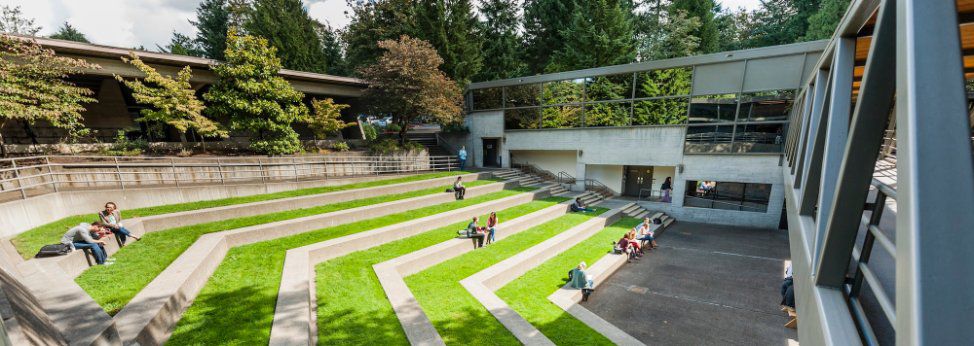The emergence of environmental law schools, dedicated to fostering a new generation of legal experts, is a crucial step toward addressing the urgent environmental challenges we face. These programs offer specialized curricula, hands-on experiences, and access to leading faculty, all geared toward equipping students to tackle the complex environmental challenges we face. However, the sheer number of programs can make it difficult for aspiring lawyers to discern which institutions truly stand out. Choosing the right school can significantly impact your career trajectory in this vital field. Identifying the best programs requires careful consideration of factors such as faculty expertise, curriculum focus, and practical experience opportunities. To help navigate this complex landscape, we have compiled a list of the environmental law best schools in the country, providing insights into their unique strengths and offerings.
Toc
Top Environmental Law Best Schools: A Comprehensive Ranking

When it comes to pursuing a career in environmental law, selecting the right institution is paramount. The environmental law best schools offer comprehensive training and resources that can significantly enhance your career prospects. Below is a ranking of some of the best law schools for environmental law in the United States, based on several critical factors:
- Academic Reputation
- Faculty Expertise
- Program Offerings
- Career Outcomes
- Research Opportunities
- Practical Experience
| School Name | Location | LSAT/GPA Percentile | Acceptance Rate | Tuition and Fees | Notable Alumni | Program Specializations | Research Centers | Environmental Law Clinics | Career Services |
|---|---|---|---|---|---|---|---|---|---|
| Vermont Law School | South Royalton, VT | 160/3.4 | 60% | $62,000 | Bill McKibben | Environmental Law & Policy | Environmental Law Center | Yes | Strong network |
| Lewis & Clark Law School | Portland, OR | 158/3.3 | 45% | $62,000 | William Ruckelshaus | Natural Resources Law | Environmental Law Center | Yes | Excellent externship opportunities |
| UC Berkeley School of Law | Berkeley, CA | 164/3.6 | 20% | $67,000 | Kamala Harris | Climate Change, Energy Law | Center for Law, Energy & the Environment | Yes | Extensive alumni network |
| Pace Law School | White Plains, NY | 156/3.2 | 50% | $60,000 | John E. McCarthy | Environmental Justice | Pace Environmental Law Program | Yes | Strong placement rates |
| University of Oregon School of Law | Eugene, OR | 157/3.3 | 40% | $56,000 | John Kitzhaber | Water Law, Land Use | Environmental and Natural Resources Law Center | Yes | Good career services |
Methodology Overview
The ranking considers various factors, including academic reputation, faculty expertise, and career outcomes.
- Academic Reputation is assessed through various metrics, including rankings by organizations like U.S. News & World Report, peer reviews from other law schools, and the reputation of the faculty within the field. A strong academic reputation indicates a school’s commitment to rigorous academic standards, faculty excellence, and producing highly qualified graduates who are sought after by employers.
- Career Outcomes are evaluated by examining factors like employment rates for graduates, the types of positions they secure (e.g., government agencies, law firms, non-profits), and their salaries. Schools often track these outcomes through surveys and alumni networks.
While these schools stand out, it’s crucial to assess individual needs and preferences when selecting the best environmental law programs for your career goals. The methodology emphasizes the importance of a well-rounded legal education that prepares students for the challenges they will face in the field.
Exploring Specialized Environmental Law Programs

Environmental law encompasses a wide array of specializations, each addressing unique challenges and opportunities. Understanding these specializations can help you choose the best schools for environmental law that align with your interests. Here are some key areas of focus:
Climate Change Law
As climate change continues to impact global ecosystems, specialized programs in climate change law are becoming increasingly vital. Schools like UC Berkeley School of Law offer a robust curriculum centered around climate policy, renewable energy, and environmental justice, preparing students to engage in critical climate litigation and advocacy. The program emphasizes interdisciplinary approaches, combining legal principles with scientific understanding to address the multifaceted challenges posed by climate change.
Climate change litigation is a rapidly growing area of environmental law. Since 2015, there has been a significant increase in lawsuits challenging government policies and corporate practices that contribute to climate change. The landmark case Juliana v. United States, filed in 2015, alleged that the government’s inaction on climate change violated the constitutional rights of youth, and it has spurred a wave of similar lawsuits. These cases are creating new opportunities for environmental lawyers.
Energy Law
With the ongoing transition to sustainable energy sources, energy law is a crucial specialization. Institutions such as Vermont Law School provide comprehensive courses in energy regulation, policy, and sustainable practices, equipping students with the knowledge to navigate the evolving energy landscape. Students may engage in research projects focused on renewable energy technologies, regulatory frameworks, and the legal implications of energy production and consumption.
ESG investing, which considers environmental, social, and governance factors in investment decisions, is becoming increasingly mainstream. As investors prioritize sustainable practices, companies are facing pressure to comply with ESG standards. This trend is influencing environmental law, as lawyers are increasingly involved in advising companies on ESG compliance and navigating related legal issues.
Water Law
Water rights and management are pivotal issues, especially in regions facing drought or over-extraction. The University of Oregon School of Law excels in this area, offering specialized courses and hands-on experiences related to water law, policy, and resource management. Students can participate in practical externships that involve working with local governments or non-profit organizations focused on water conservation and management strategies.
Environmental Justice
Environmental justice focuses on the equitable distribution of environmental benefits and burdens. Pace Law School stands out for its commitment to this specialization, providing students with the tools to advocate for marginalized communities disproportionately affected by environmental harm. The curriculum includes courses on environmental policy, social justice, and community advocacy, enabling students to engage in meaningful work that addresses systemic inequalities.
Land Use and Development
Land use law plays a critical role in urban planning and environmental protection. Lewis & Clark Law School offers a rich array of courses in land use, zoning, and sustainable development, preparing students to address complex land use issues in their future careers. The program often includes collaboration with local governments on real-world planning challenges, allowing students to apply their legal knowledge in practical settings.
While specializing can be beneficial, it’s important to remember that a broad understanding of environmental law principles can open doors to a wider range of career opportunities.
Factors to Consider When Choosing an Environmental Law School

Selecting the right environmental law school requires careful consideration of various factors. Here’s what aspiring students should evaluate:
Curriculum and Specialization Opportunities
Look for a curriculum that aligns with your interests, whether in energy law, water law, or environmental justice. Investigate the availability of specialized courses, clinics, and research opportunities to gain practical skills essential for success in the field. Schools that offer interdisciplinary programs can provide a broader perspective on environmental issues and their legal implications.
Faculty Expertise and Research Initiatives
The faculty’s qualifications and dedication can profoundly shape your educational experience. Research the expertise of the professors, their research contributions, and the school’s active research centers focusing on environmental issues. Faculty who are engaged in current environmental challenges can provide valuable insights and mentorship, helping students navigate their academic and professional paths.
Hands-On Experiences and Experiential Learning
Practical experience is invaluable in environmental law. Prioritize schools offering robust externship, internship, and clinical programs, allowing you to apply your classroom knowledge in real-world settings. Opportunities to work with government agencies, non-profits, or private firms specializing in environmental law can be transformative. Engaging in these experiences not only enhances your skills but also builds a professional network that can be beneficial after graduation.
Location and Career Prospects
The geographic location of the law school can significantly impact your career trajectory. Consider local job markets and the school’s connections with potential employers in the environmental law sector. Proximity to regulatory agencies and environmental organizations can enhance networking opportunities. Additionally, schools located in regions with active environmental legislation may provide students with unique opportunities to engage in relevant legal work. Ultimately, the best location for you will depend on your individual preferences and career goals, not just the availability of jobs.
Financial Aid and Scholarships
Financing your education is a critical consideration. Many law schools provide scholarships and financial aid specifically for students interested in environmental law. Research these opportunities and understand the application requirements to maximize your chances of securing funding. Consider also the long-term financial implications of student loans and how they may affect your career choices post-graduation.
How to Make Your Application Stand Out

Crafting a competitive application is essential for gaining admission to the environmental law best schools. Here are some tips to strengthen your application:
Academic Excellence
A strong GPA and competitive LSAT scores are fundamental. Focus on maintaining academic performance and seek opportunities to excel in relevant coursework. Consider taking advanced courses in environmental science or policy to demonstrate your commitment to the field.
Relevant Extracurricular Activities
Engage in extracurricular activities that demonstrate your commitment to environmental law. Volunteer with environmental organizations, participate in law-related internships, or join relevant student organizations. Active involvement in community service or advocacy can also enhance your application by showcasing your dedication to making a difference.
Compelling Personal Statement
Your personal statement should reflect your passion for environmental law and your unique motivations for pursuing this path. Highlight experiences that shaped your interest and how you plan to contribute to the field. Be authentic and articulate your vision for your future career, emphasizing how the specific program aligns with your goals.
Letters of Recommendation
Secure strong letters of recommendation from individuals who can attest to your capabilities and commitment to environmental law. Choose recommenders who are familiar with your academic and professional achievements. It’s beneficial if they can speak to your analytical skills, work ethic, and dedication to environmental issues.
Interview Preparation
If interviews are part of the admission process, prepare thoroughly. Practice articulating your motivations, experiences, and aspirations clearly and confidently. Research the school and its faculty, and be prepared to discuss how your interests align with the program’s offerings.
Frequently Asked Questions

What undergraduate degree is best for environmental law?
While no specific degree is required, backgrounds in environmental studies, political science, or public policy can provide a solid foundation for a career in environmental law. Courses in science, economics, and sociology can also be beneficial, as they provide context for understanding complex environmental issues.
Is environmental law difficult?
Environmental law can be complex due to its interdisciplinary nature, involving science, policy, and economics. However, with dedication and a strong understanding of the subject, you can navigate its challenges effectively. Engaging with diverse perspectives and staying informed about current events can also enhance your comprehension of the field.
How competitive are top environmental law programs?
Admission to the best environmental law schools is highly competitive. Prospective students should focus on maintaining excellent academic credentials and demonstrating a clear commitment to environmental issues through their applications. Networking with current students and alumni can provide insights into the application process and what the schools value.
What are the career prospects for environmental lawyers?
Environmental lawyers can pursue various career paths, including roles in government agencies, non-profit organizations, and private law firms specializing in environmental law. The demand for skilled professionals in this field continues to grow, providing ample opportunities for new graduates. Emerging areas such as climate litigation and sustainability law are expanding the job market.
The Role of Environmental Law in a Changing World

As the world grapples with pressing environmental challenges, the demand for skilled environmental lawyers continues to rise. By choosing to study at the environmental law best schools, you’ll not only acquire the knowledge and skills necessary to thrive in this dynamic field but also join a community of changemakers dedicated to safeguarding our planet. Conduct thorough research, visit schools, and connect with current students and faculty to find the perfect fit for your aspirations. The journey toward becoming an environmental lawyer is not just about the destination; it’s about the impact you can make in the world. Embark on this transformative journey, and together, let’s shape a more sustainable future.







